‘The Day Deserved’, Chicago-born but Nashville-based writer and musician Doug Hoekstra’s new record, is an album of characters. Hoekstra followed his 2006 collection, ‘Bothering the Coffee Drinkers’, with both a second set of short stories, ‘The Tenth Inning’ (2014), and a volume of poetry, ‘Unopened’ (2019). ‘Ten Seconds In Between’, a third collection of short stories, has just been published. Single dad Hoekstra , however, took a long sabbatical from making music to bring up his son Jude, and ‘The Day Deserved’, which is his eighth solo album, is his first new recording since 2008’s acclaimed ‘Blooming Roses’ . Its ten songs are all lengthy, few coming in at less than five minutes and several stretching out to over seven minutes, and, embracing components of jazz, pop, folk and country, none of them finishing at the same point upon which they started. Lyrically they reveal the humanitarian Hoekstra’s political and social concerns. The main character in ‘Seaside Town’, an artist unable to fit into the beach town she has found herself in, chooses to vanish. ‘Unseen Undetected’ is told from the alternate perspectives of an immigrant family coming to America in the hope of a better life and a white supremacist gang. ‘Gandy Dancer’, inspired by a family story about Hoekstra’s uncle set down on tape by his father, tells of the brutal and dangerous existence of 1940’s railroad workers, and ‘Keeper of the World’, lyrics from which provide the album with its title, in contrast imagines the love affair between a bookshop employee in an English town and a customer. The sparse ‘Outside Looking In’ is about a shy and solitary baseball scorer whose life is sparked by a beautiful but also isolated girl whom he spots at a game and feels an instant connection with . Pennyblackmusic spoke to Doug Hoekstra about ‘The Day Deserved’ and his return to music. PB: It has been over ten years since you last released a record. You have continued to publish short stories and poetry in the meantime. Why have you decided to return to making music now? DH: It was connected to the pragmatic fact that Jude, my son, was older and I had more time to do music. I hadn’t played much of my own music around him and I thought it would be nice to maybe get him in on a track which I did. So, that was part of it, but I also missed the community of musicians as much as the actual music and I wanted to get back to that. I also felt that a lot of musicians weren’t really addressing everything that we have had going on socially and politically in the States during the last few years, so I wanted to write about that too. PB: Have all the ten songs on the album been written recently or are some older? DH: No, they were all done recently. I wrote most of them in 2019. They are all new. When i was focusing on bringing up Jude and writing prose, I didn’t do much music. I didn’t have a catalogue of music sitting around. I just started from scratch. PB: Was it hard coming back to music or did you just find yourself kicking back into gear easily with it? DH: It wasn’t hard. When you are an artist at any level, you develop a style but at the same time you want to try to do new things, I didn’t want to start up again and do a record like I did ten years ago and another version of that, but at the same time I didn’t want to something to be all trendy and that was not authentic. That was more of a challenge doing something different. PB: Do you think that taking a long break gave you a freshness which you may have otherwise not had had? DH: Yeah, I think so. You work your whole life to evolve a style and then you work to get away from it (Laughs). I think that having that time off was freeing because I felt like I was starting from scratch, but with the benefit of the knowledge that I had gained over the years. PB: All the songs on ‘The Day Deserved’ are lengthy, much more so than those on your other albums. There is very little on it which is under five minutes. It is an album of big themes and issues. Was that a conscious decision to make all the tracks so long to tie in with those or was that just the way it turned out? DH: The idea was definitely to let the songs stretch out musically. I mapped them out roughly like that when I demoed them. When I went in with the band, we worked quickly but we took the template and stretched it even more. I didn’t want the songs to be just stories with music behind it. I wanted them to be expansive songs where there were changes and where the structures mirrored the lyrics. PB: Where did the phrase ‘The Day Deserved’ come from? DH: That is a line from ‘Keeper of the Word –“The light the day deserved/To which I return.” It seems to sum up for me what we went through and are still going through in the States, but particularly in the last four years. It is a classic thing. When people want to go ahead, they put another person, another group down, but at the end of the day everyone wants the same thing. They want a space in the world. They want to be their best self, and everybody deserves that. Everybody deserves a good day, and if you have a good day and then more good days you have a good life. So many people, however, are denied even that. It also references my parents. They were very elderly and have both passed now, but even when they were failing and it was towards the end they still just wanted another day. PB: Many of the characters such as the main character in ‘Seaside Town’ and the scorer in ‘Outside Looking In’ are like Raymond Carver characters in that achieve small victories, the sort of thing that would be maybe unimportant to someone else, but is of crucial importance to them. DH: That is a good observation. If you are writing from a character’s point of view, you try to bring an universality to it and you put it in a way that hopefully people will understand. In ‘Seaside Town’ the main character is an artist and she doesn’t fit into the community and the only way she can get to the next level is by leaving it and becoming invisible. I think a lot of people will have gone through something similar, although in different ways. ‘Outside Looking In’ is more specific because it is about where I grew up in Chicago and Wrigley Field which is where the Chicago Cubs’ play baseball. They have this particular scoreboard where people can go inside the scoreboard and sit there and manually change the numbers, so I thought about what the guy doing that might think about when he looks out onto the field and he is part of it but not really part of it. The idea of that is something which a lot of people can hopefully again relate to again, of being outside looking in and on the edge of the crowd and a feeling of displacement. You just try and come from that perspective and put it in a way that folks can relate to. PB: How easy was it then for you to put yourself in the mindset of a group of white supremacists as you do on ‘Unseen Undetected’? DH: (Laughs) Sadly white supremacy has been ever present in America in the last few years. It certainly took me out of my comfort zone. That song came about because I had to have some painting done at my house, and these guys came over and they were Hispanic. They came over here from Mexico. The foreman had brought his family over, and we talked a lot and I said to him, “How did you get here?” And he was just the greatest guy, really cool. His brothers help him and he is very family-oriented, and he came back later and the first thing he did was ask me about my son. I am a second-generation American and that got me thinking about the whole backline of the United States and how much of this country is built on people like my grandparents and this fellow. That song is told in part from a viewpoint of an immigrant, but on the other side I thought that it would be interesting to do a dual narrative. You could say that it still under the surface how much immigrants contribute to our culture, although they have got more exposure in a positive way during the last few years. There has, however, always been an undercurrent of white supremacy and intolerance too of these immigrants which really came to the surface during the Trump administration. I guess the positive if there is a positive in all the focus on the Proud Boys and all these racist groups in America is that both these sides came out. We have always struggled with this part of our history here in the States, and so it shed light on that but it also shed light on the contributions people like the Hispanic painter is making to our culture. They just want their place and their day again. It is not complicated. They want to come here and work hard and become part of the culture. PB: ‘Gandy Dancer’ was inspired by a recording you made of your late father telling a story about your uncle and his brother. You made many hours of recordings of your parents. Was that primarily to make an archive of your family history and to have something to pass onto Jude? DH: I did that long before Jude came on the scene. I did this maybe twenty years ago, Jude is eighteen now. There was a book lying around my folks’ house, ‘How to Record Your Family History’, and I recorded ten CDs of interviews with my folk. This book was great because it had all sorts of trigger questions. Jude and I have got into the habit of taking the CDs with us when we go on trips. I have listened to them several times now. There was one story which my dad told about his brother had this terrible, dangerous job as a gandy dancer building the railroads with all these Chinese immigrants. This might have been the 1940s and he quit it right away but for them it was less easy to do so. I thought, “What a great idea for a song!” PB: The cover art on ‘The Day Deserved’ is fantastic. Where does that image come from? DH: I worked with Bob Delevante on the cover. He was the graphics guy. I wanted people on it because there are so many characters on the album, and so we dug around and found that shot in a public domain. It is a drone shot. You see all these people moving about on it and you don’t know where they are going, but they all have their stories and you can see who they are but not super close. They are like an amalgamation of the people on the record. PB: The other main members of the band on this record are Dave Coleman , Chris Benelli and Paul Slivka. Who are they? DH: I knew Dave who plays lead guitar casually over the years but I had never worked with him I was looking for studios and new folks to work with. He has got a studio in East Nashville and I liked what he did and he suggested the rhythm section. I had worked with Paul who plays bass before, but not with Chris Benelli the drumme. We did the backing very quickly, four songs in a day, and then four songs in another day and then a couple more and then the overdubs we took a little more time over. We also got Jimmy Boland, who is a great sax player and Dave Henry who plays violin and cello to appear on a couple of tracks, and Hannah Fairlight, who is an artist in her own right, to do backing vocals. Jude also plays on a track and so that was fun, He plays clarinet on ‘Late Night Ramble. He is talented, but I was a little worried that he had never been in a studio beforehand so I scored it. I can do that if I have to, so I worked on the part and I scored it, and he came in and he did it and it was fine, but then I had a part of it which was like “Why don’t you just play here?” and honestly I think that the stuff he just played there was better ideas than the stuff I scored (Laughs). PB: -You have organised videos for five of the tracks on ‘The Day Deserved’ wit five different video directors. You only appear in one of them, ‘Outside Looking In’. What criteria did you set out for the video directors? Did you provide them with much guidance? DH: Well, actually we have got six now (Laughs). I thought, “Okay, it is a pandemic, so I can’t tour,” but I knew that people were making videos a lot as an alternative, so I thought, “Well, why don’t I just ask around and see who is available?” and they are mostly directed by friends. ‘Seaside Town’ is is directed by my friend Pat Meusel who played guitar with me for ages, and I did ‘Unseen undetected’ myself. ‘Wintertime’ is directed by a friend Glenn Hall down in Georgia and his son Max. ‘Outside Looking In’ was done by Dave Coleman ,and I got ‘Higher Ground’ from an old student Trevor Denton whom I taught at an art college, The only guy I reached to who had experience in video was the guy who did ‘Gandy Dancer’, Grant Claire, and who does a bunch of stuff for people like Shovels and Rope. I was pretty open about it. Obviously with ‘Unseen Undetected’ I had a pretty specific idea, but otherwise I said, “This is the song. Roll with it!” It was fun for me just to see what people came up with. On ‘Gandy Dancer’, however, I mentioned Saul Bass, the guy who did the credits for ‘Vertigo’ and ‘Dial M for Murder’, to Grant, and Grant did a little bit of Saul Bass style animation but otherwise he did his own thing. I just encouraged people to do like whatever, and it was cool It has been beneficial because with the pandemic it has been a nice, little way to get my music out to people. PB: You’re publishing a new set of short stories ‘Ten Seconds In-Between’. They are inspired by the fact that it takes you between seven and seventeen seconds to decide if you are going to like someone after you first meet them. How have you worked that theme into the stories? DH: I had read about this idea. There are apparently ten seconds in which you are going to decide whether you are going to connect with somebody which is between the seventh and the seventeenth second of first meeting them. It is amazing how much of our interactions are based on instinct. We think that we are really smart, and there are all these reasons why we are interconnecting with people, but at some level it is just our experience and our DNA and we know within these ten seconds most of the time if we are going to get on with someone or not, and I thought that was an interesting concept. Although I have used a line about it in one particular story, the stories are about those connections, and I thought that it was fitting to tie it all together. PB: Thank you.
Band Links:-
https://doughoekstra.net/https://www.facebook.com/doughoekstramusic/
Play in YouTube:-
Have a Listen:-
Picture Gallery:-
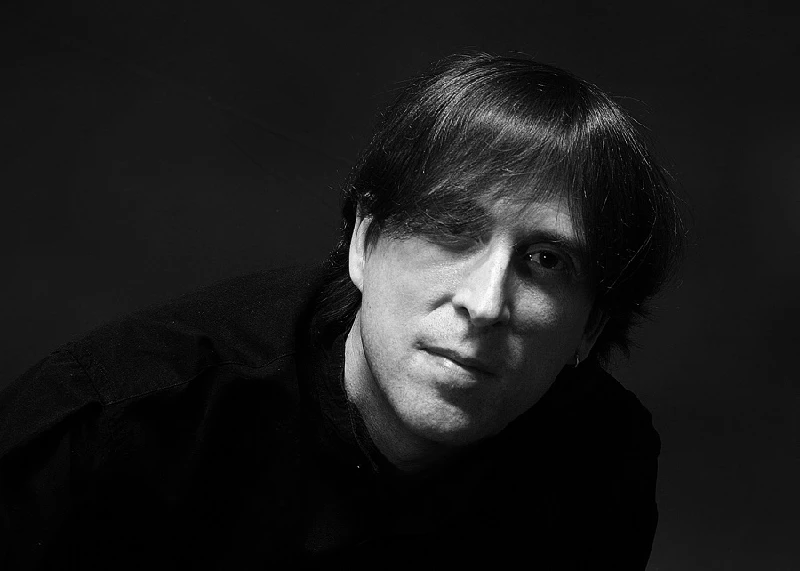
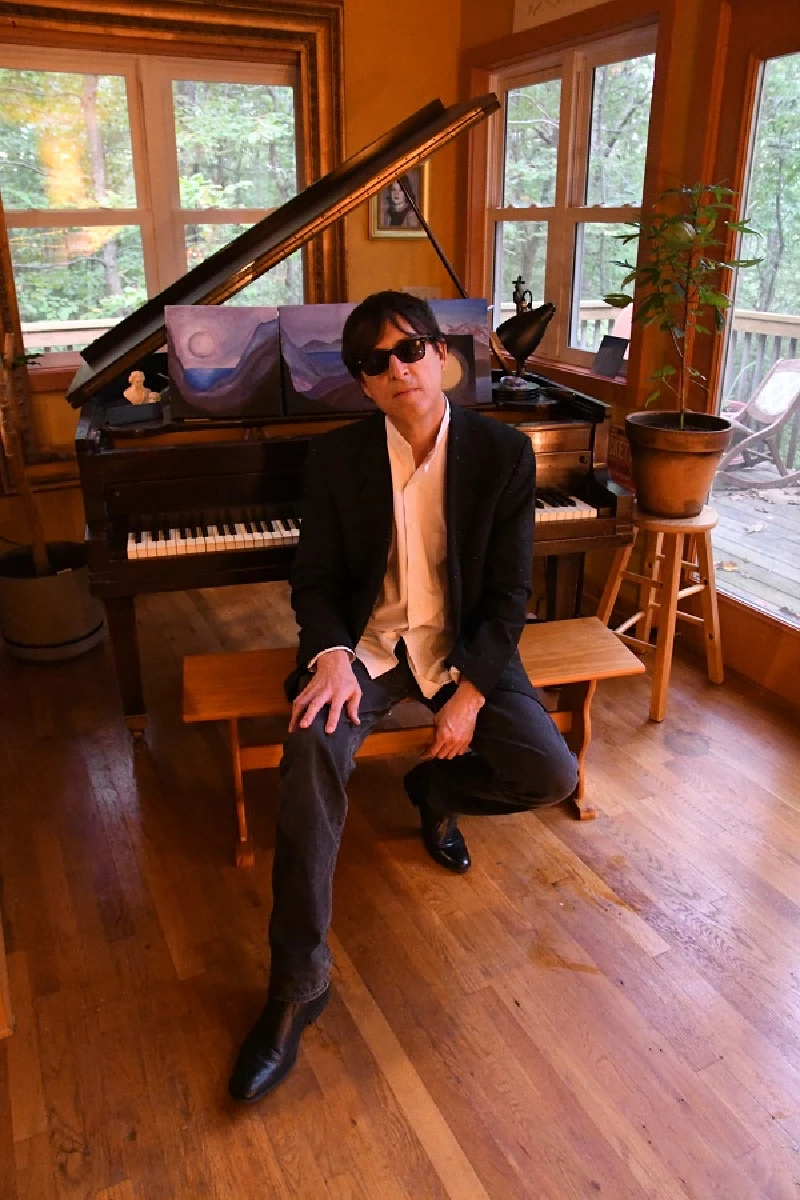
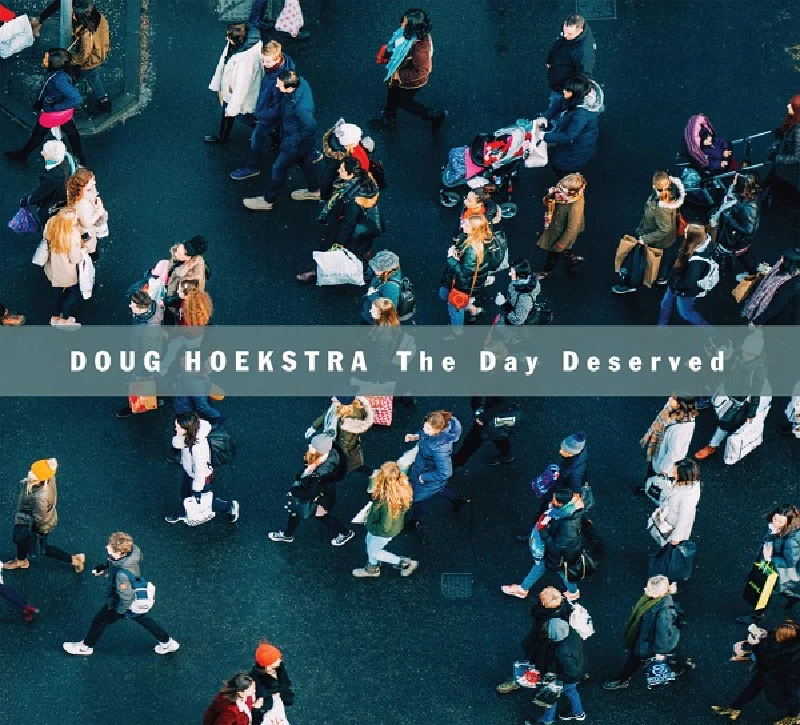
intro
Nashville-based writer and musician Doug Hoekstra talks to John Clarkson about 'The Day Deserved', his first album in over a decade, and his return to music.
interviews |
|
Interview (2003) |
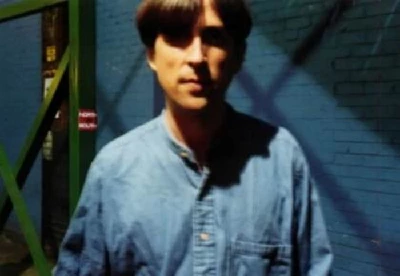
|
| Nashville musician Doug Hoekstra's new album 'Waiting' represents a change of direction, being recorded almost entirely at home while he awaited the birth of his first child. He chats to John Clarkson about its recording |
| Interview (2002) |
profiles |
|
Ten Seconds In Between (2021) |
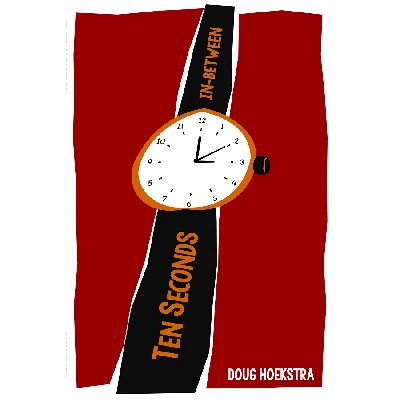
|
| John Clarkson examines Nashville-based singer-songwriter and author Doug Hoekstra's haunting new collection of short stories. |
| 'Wintertime' Video Premiere (2021) |
| Unopened (2019) |
features |
|
The Image That Made Me Weep (2020) |
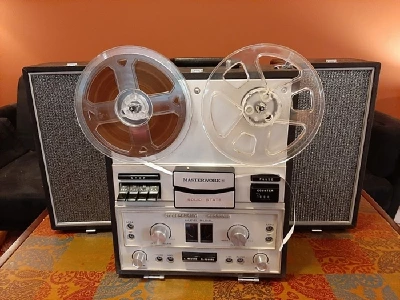
|
| Nashville-based musician and writer Doug Hoekstra in 'The Image That Made Me Weep' writes of the redisoovery of a reel to reel tape recorder on which he made much of his early music in his late father's house |
| Six Songs/Su Casa, Mi Casa : the Official Live Boo (2005) |
bandcamp
reviews |
|
Blooming Roses (2008) |
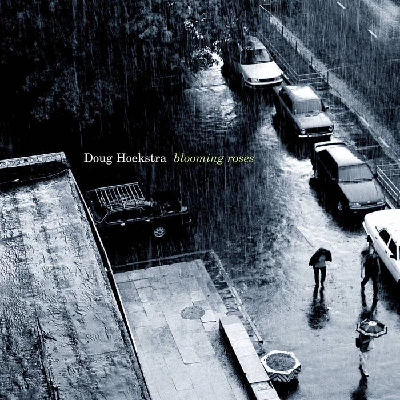
|
| Superb and ultimately hopeful eighth album from Nashville-based singer-songwriter Doug Hoekstra |
| Waiting (2004) |
| The Past is Never Past (2001) |
| Around The Margins (2001) |
most viewed articles
current edition
In Dreams Begin Responsibilities - #15- On Being Dignified and Old aka Ten Tips From Jah Wobble On How To Be Happy.Dennis Tufano - Copernicus Center, Chicago, 19/7/2024
Elliott Murphy - Interview
Wreckless Eric - Interview
In Dreams Begin Responsibilities - #16: Living in the Minds of Strangers
In Dreams Begin Responsibilities - #17: Tom Robinson
Adrian Gurvitz - Interview
Norman Rodger - Interview
Chris Spedding - Interview
Penumbra - Interview
previous editions
Heavenly - P.U.N.K. Girl EPIn Dreams Begin Responsibilities - #5 - ‘We all have good intentions/ But all with strings attached’: Music and Mental Health Part 2
Trudie Myerscough-Harris - Interview
Allan Clarke - Interview
Dwina Gibb - Interview
Joy Division - The Image That Made Me Weep
Beautiful South - Ten Songs That Made Me Love...
Jimmy Nail - Interview
Nerve - Interview
One Thousand Violins - Interview
most viewed reviews
current edition
Groovy Uncle - Making ExcusesPhilip Parfitt - The Dark Light
Jules Winchester - The Journey
Hawkestrel - Chaos Rocks
Bill Wyman - Drive My Car
Ross Couper Band - The Homeroad
Deep Purple - =1
Popstar - Obscene
John Murry and Michael Timmins - A Little Bit of Grace and Decay
Splashgirl and Robert Aiki Aubrey Lowe - More Human
Pennyblackmusic Regular Contributors
Adrian Janes
Amanda J. Window
Andrew Twambley
Anthony Dhanendran
Benjamin Howarth
Cila Warncke
Daniel Cressey
Darren Aston
Dastardly
Dave Goodwin
Denzil Watson
Dominic B. Simpson
Eoghan Lyng
Fiona Hutchings
Harry Sherriff
Helen Tipping
Jamie Rowland
John Clarkson
Julie Cruickshank
Kimberly Bright
Lisa Torem
Maarten Schiethart